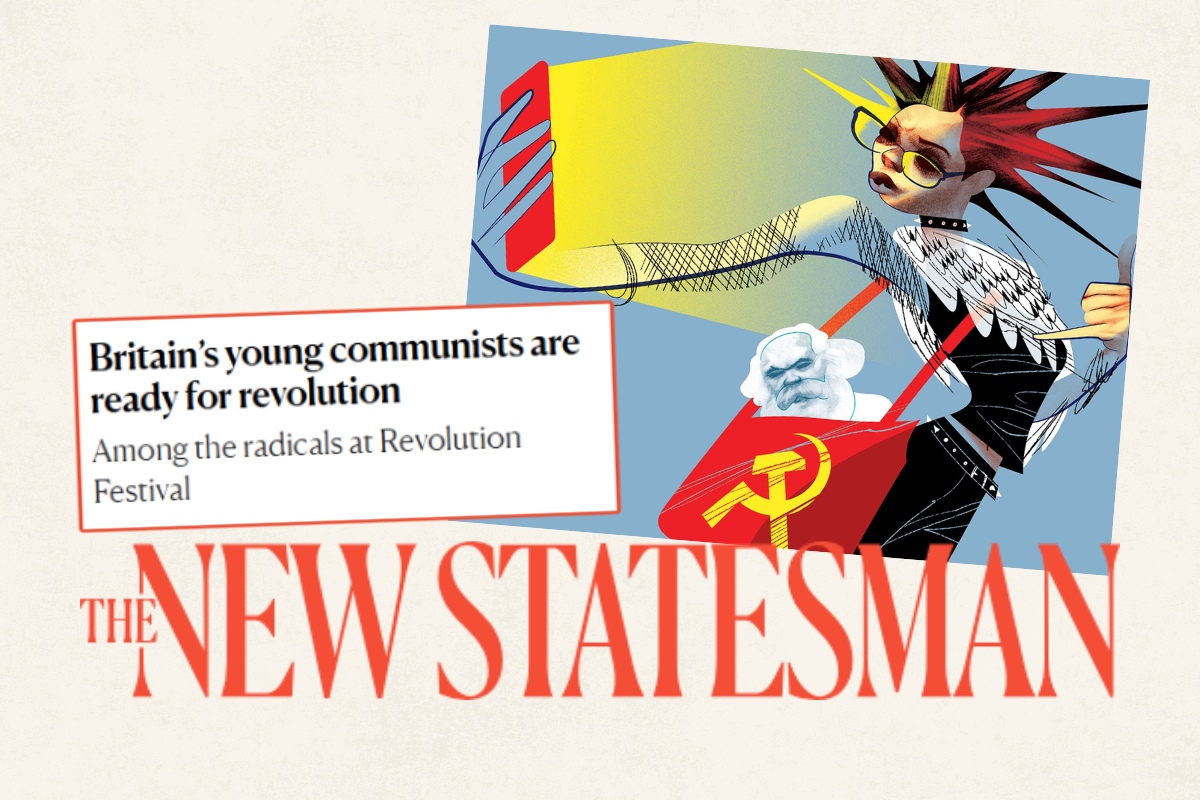From the leaders of the labour
movement, in particular the Labour Party, the idea that the Tory cuts
are “ideological” is often put forward. The idea is that the Tories are
doing this out of ideological commitment against the welfare state. This
is misleading. The cuts are a product of the crisis of the Capitalist
system.
From the leaders of the labour
movement, in particular the Labour Party, the idea that the Tory cuts
are “ideological” is often put forward. The idea is that the Tories are
doing this out of ideological commitment against the welfare state. This
is misleading. The cuts are a product of the crisis of the Capitalist
system.
The causes of Capitalist crisis were explained by Marx already in the Communist Manifesto:
“In these crises, there breaks out an epidemic that, in all earlier
epochs, would have seemed an absurdity — the epidemic of
over-production. Society suddenly finds itself put back into a state of
momentary barbarism; it appears as if a famine, a universal war of
devastation, had cut off the supply of every means of subsistence;
industry and commerce seem to be destroyed; and why? Because there is
too much civilisation, too much means of subsistence, too much industry,
too much commerce.”
This is precisely what happened in the so called “credit crunch”. We
saw huge amounts of unsold cars in car parks. Houses that previously had
been sold very easily were suddenly impossible to sell and construction
ground to a halt. The crisis appeared as a credit crisis precisely
because it was a crisis of overproduction. The bourgeois had attempted
to extend the credit, with low interest rates and generous mortgage
terms precisely in order to prevent this taking place but unlike paying
someone a decent wage, a mortgage has to be paid back and many workers
couldn’t do so. The first symptom of the crisis therefore appeared in
the so called “sub-prime” mortgages – the loans given to workers who had
no means of paying them back.
The fact that the banks couldn’t get the money back made them
insolvent and governments around the world were forced to bail them out.
That is not only because they have an “ideological” commitment to the
banking sector, but because the banks and the credit they provide are
the oil in the machinery. Without credit the world economy would grind
to a halt. £850bn was made available in the UK for the banks. Some of
the money was never spent and some will be recovered but the total cost
of the bank bail-out is estimated to between £70bn and £140bn if the
present economic forecasts are true, which is by no means guaranteed.
The UK national debt is now £950bn, which costs around £43bn per year in
interest payments alone (twice the cost of trident replacement or the
total size of the UK defence budget) and it is increasing fast.
The bailout, combined with the loss of revenue from taxation as well
as higher costs for benefits (as more people qualify) has meant that the
yearly budget deficit of the UK state is £149bn, or around 12.6% of GDP
(the total value of everything produced in the UK in one year). If this
was allowed to continue, the government would be forced to pay higher
interest rates as investors would start to worry whether the government
could pay it back or not. The part of the budget that went simply to
paying the interest on the debt would spiral. In effect, that is what
happened to Ireland, and why the European governments were forced to
bail out Ireland as no private investors were willing to lend the
country any more money. That is, in order to make its banks solvent, the
ruling class turned its governments insolvent.
On a Capitalist basis, there is no way out of this mess. Even the
Labour Party leadership, which have been most vocal in their claims that
the cuts are “ideological”, agree on this: “Yes – there must be cuts.
Tough choices do have to be made”, Alan Johnson, the shadow Chancellor,
said in his response to the spending review. Rather than fast cuts,
however, Johnson says: “We argue for a slower pace of deficit reduction –
to support growth and jobs.” The Labour Party leadership, although
putting forward the idea of the cuts being “ideological”, is proposing
the same thing as the Tories, only that it should not be done so
quickly. Alan Johnson argues for £20bn of cuts, rather than the £47bn
Osborn is proposing.
Alan Johnson is making the point that fast cuts jeopardise the
recovery, that it further undermines the ability of workers to consume
and that this could lead to a double dip recession. Cutting benefits and
sacking workers will only decrease demand for houses and maintain the
construction industry (as well as banking) in a depressed state. It is a
fact, which the press tries to ignore, that the crisis is not over yet.
Many unsold houses are out there on the market and even more are being
but there by banks that are repossessing homes as evidenced by the 3.9%
fall in house prices since June. This raises the prospect of the need
for even more bank bailouts. Yet, Cameron equally has a point when he
argues that if the British government does not show determination to cut
the deficit the markets will force up lending costs, as happened with
Greece and Ireland. Deficit spending is only possible as long as someone
is willing to lend you the money.
Under Capitalism, governments as well as workers are forced to obey
the tyranny of the markets. In effect it was the markets that put the
end to the stimulus plans in the European Union when they attacked
Greece. The speculators saw that there was no way that the level of debt
that was accumulated was sustainable. The collapse of Greece set in
motion a chain of events that lead to the collapse of Ireland and the
crisis will soon reach Portugal and Spain. Greece, Spain and Portugal
all supposedly have “socialist” governments. Yet, the austerity measures
in those countries have been worse than in Britain because the crisis
is more severe.
The reality is that, whatever our ideological persuasion, unless we
are willing to break with Capitalism and the tyranny of the markets,
there is no way that we can get out of this mess without massive
austerity programmes. Governments across the world are attempting to
make the workers’ pay for the crisis. They don’t do this because of
“ideology” but because the only alternative would be to make the
Capitalists pay for the crisis. That can only be done by taking over the
commanding heights of the economy and putting it in the hands of the
working class under a socialist plan.






